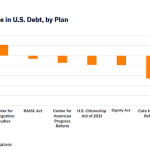
Marketing is an avenue of persuasive communication. Effective communication & persuasion are two key objectives of any marketing effort or strategy.
However, getting your message/information across effectively and persuading others with it is easier said than done. Therein arises the need for myriad tactics, strategies, approaches, media, etc., and for managing everything to ensure the best outcomes. A well-organized & managed marketing campaign has a much better chance to enhance brand awareness, market share, overall strategic efficiency, and profits.
All marketing management assignments you will come across will require you to tackle myriad scenarios & conjure effective strategies & mixes and choose the right tools & media to guide your audience into making a favorable decision. If you are working on one, a write-up can come. It contains a bunch of impressive insights on developing & managing marketing strategies & comes to you straight from the experts of MyAssignmentHelp.com, the best assignment help service in the UK & USA.
Dive right in.
The Four Focal Points of Marketing Management
There are four key aspects to look into & control – quality, value, relationships, and customer satisfaction.
QUALITY & VALUE
The emphasis on value-based content, strategies, & approaches is one of the most significant trends in today’s competitive world. Be it promotions, service support, timely delivery, or after-sales assistance, delivering value and quality at every stage of the marketing funnel is a surefire way of making a long-lasting positive impression.
The focus on value may need you to rejig your view/understanding of product quality and customer service. Look into a product’s non-price attributes that affect consumer choice. Competitive & financial analysis measures may need to be implemented to determine pricing, ROI, return on sales, internal rate of return, etc.
Total quality management is an effective framework that managers have been focusing on & implementing across domains. The idea is to have ALL members of an organization take part in quality-enhancing processes across all organizational levels.
Intra-organizational feedback, alongside competitive & market analysis, should guide the formulation and application of marketing plans & budgets.
Teamwork, cooperation, and communication are vital for developing quality-focused marketing plans. Not just the marketing department but every functional area of an organization must be cognizant of how customers define value & quality & how they expect quality/value to be delivered.
Delivering a quality/valuable customer experience is an age-old concern for organizations all over. Globalization, increased competition & economic uncertainties have increased the focus on such concerns. Customer service is now at the top of the minds of most marketing managers.
Improving customer’s perception of service quality is all about improving reliability & closing the gap between their expectations & the ultimate reality of the services delivered.
Reduce the gap between customer expectations & marketer perceptions of those expectations Research service expectations in a target market & then devise strategies that allow you to deliver above & beyond.
Reduce the gap between existing service quality specifications & the quality delivered . Understanding where your service strategy is lacking & what things to improve is the first step towards meeting & exceeding expectations.
Tangibles, reliability, responsiveness, assurance, & empathy these are the five key dimensions of service quality. Address them consistently to enhance customer loyalty and rise above the competition.
RELATIONSHIPS
Relationship management is another key aspect of effective marketing management. A business and its marketers must develop a connection or closeness with its customers and, in fact, any party who contributes to the success of an organization.
The focus of relationship management in any business scenario is on creating and maintaining long-term, mutually beneficial relationships with all of a business’s stakeholders. Establishing and nurturing relationships with consumers, suppliers, intermediaries, etc., is critical for marketers. Only then will any marketing strategy align with what’s best for everyone.
CUSTOMER SATISFACTION
An increased emphasis on value, quality, and relationships should run in tandem with an increased focus on customer satisfaction. After all, that’s the endgame of all marketing campaigns, tactics, and the like.
Meeting and exceeding customer satisfaction boosts customer loyalty and retention. Retaining a substantial customer base is less challenging than acquiring new ones. Ensuring complete satisfaction is the focal point of every business. A generic process for managers to deliver optimal customer satisfaction involves
Looking into and understanding all the relevant factors, attributes, & characteristics of customer satisfaction
Look into the nuances of customer satisfaction concerning changing customer perspectives.
Developing and implementing measurement & assessment systems for monitoring all customer satisfaction attributes
Interpreting goals and monitoring performance to address any necessary improvements
Developing & implementing action plans to align performance with goals
You attain continuous quality improvement by focusing on quality, value, customer satisfaction, and relationships while developing marketing strategies. One attains effective marketing management through continuous analysis, improvement, and monitoring of these four elements.
As we take a concise look at the generic structure of an effective marketing management process, expert guidance may become essential in many cases. Click on the link to connect with leading marketing management & human resources assignment help service experts.
Features of an Effective Marketing Management Approach
Addressing the requirements for improving quality, value, relationships, & customer satisfaction amidst rising competition and increasingly adverse economic conditions is difficult. Years of research, analysis, and experience across businesses & sectors have unveiled an effective & flexible model that ticks the right requirements for marketing managers.
Societal Marketing Orientation
Effective management begins with the proper & distinct orientation of a marketing manager/department towards customers, the company’s offerings, & the company’s objectives. Societal marketing approaches allow marketers to align company profitability with its marketing tactics.
Societal orientation approaches to business often require a complete overhaul of company philosophy and thinking. Key ingredients to attaining societal orientation are :
Thorough market and marketing knowledge
Marketing-oriented leadership
Aligning customer satisfaction and profitability with employee satisfaction
The most important step in implementing societal orientation is understanding all the nuances of a market, customer satisfaction, and competition.
In-depth Understanding
Understanding is key to developing an effective marketing plan. A manager must understand the target market, the segments within, how to serve & what it takes to satisfy every segment, what others are doing, and how to do things better.
Thorough research and careful analysis of a firm’s operating environments/target markets lie at the heart of every effective marketing strategy. The research involves all the different procedures & techniques for collecting, auditing, & interpreting data. Choosing the right research methodology & information sources is essential to reducing errors & uncertainties in decision-making.
Continual research, analysis, and flow of insights & information can be instrumental in developing clear understanding & effective decision-making. Today, different marketing management systems provide crucial insights into target markets, customer segments, industry & market trends, customer profiles, performance metrics, etc.
Three key analyses form the core of all market research & analysis programs. They are
Market Segment Analysis: Firms must be able to identify the most profitable market segments. Market segmentation and target marketing are all about identifying broad classes of buyers, looking at different market responses, and developing marketing mixes aimed at each specific segment across broad classes.
Financial Analysis: Determining the financial impact of marketing decisions is another exceptionally crucial process. Cost, revenue, and profitability are three key factors that require minute analysis.
Competitive analysis is vital for understanding the type of competition in the market, what strategies market/segment leaders & other competitors have been using, and what tactics will work best.
Understanding your competition, identifying their strategies, zeroing in on their objectives, assessing their strengths & weaknesses, and determining reactionary patterns are five essential tenets of competitor analysis.
Once all necessary information, insights, & blueprints are ready, it’s time to lay out the plan.
Careful Planning
Developing a well-grounded, versatile, and groundbreaking marketing plan is a prerequisite for any marketing manager in this hypercompetitive world. Societal orientation and exhaustive market research pave the way for the planning process. Orientation and research are essential for aligning marketing ideas with the voice of the market & the target demographics.
Two primary stages of shrewd marketing strategy development are strategic and operational planning. Strategic planning occurs at a higher level and is the primary responsibility of top management, who devise long-term strategies & company-wide policies. Operational planning implements the long-term strategies into the different marketing operations & specific functions. Operational planning involves developing an apt marketing strategy, determining the marketing plan, choosing format & delivery media, determining costs, forecasting revenues, and designing appropriate marketing mixes.
Implementation
A well-conceived plan works only when it has been implemented effectively. Intelligent implementation puts into practice the strategies & resultant plans through the organization of necessary resources & efforts. Marketing implementation focuses on turning plans into actionable assignments & ensuring the actions attain the plan’s key objectives.
Addressing Feeback
Connecting with consumers is not an easy task. It takes time, effort, and often re-evaluation & re-implementation of marketing plans. Strategic modifications and outright overhauls may become necessary to establish a deep connection. At the same time, feedback from consumers & monitoring programs may also lead to re-evaluation. Continuous monitoring & control of marketing activities should be a central aspect of marketing plans. It, too, involves varied levels & types of analysis for addressing any gaps in performance and deciding upon the most pertinent corrective actions for boosting profitability, improving customer satisfaction, improving operations, & tackling competition.
Effective marketing management is attained by effectively implementing marketing strategies & plans to fruition. Successful marketing managers must have a holistic view of every aspect that can influence a company’s presence in a market. From the nature of the products/service peddled to public perceptions & brand awareness, from re-orienting company objectives towards customer satisfaction to assessing market demographics, trends, consumer feedback & competitors, the role of a marketing manager extends multiple strata of a firm’s operations.
That’s all the space we have for this article. Here are some great links to go through if you wish to learn more
https://ocw.mit.edu/courses/15-810-marketing-management-fall-2004/pages/lecture-notes/
https://www.uobabylon.edu.iq/eprints/paper_12_19309_1049.pdf
https://quicforce.ibsindia.org/pluginfile.php/329912/mod_folder/content/0/MM/Marketing%20Management%20Notes%201-10.docx.pdf
Study well to master the different aspects of the subject. And, if you need some help with your marketing and/or management assignments, connect with expert professionals from a reputed writing service.
Read more:
Excelling in Marketing Management Assignments: Expert Insights on the Subject






